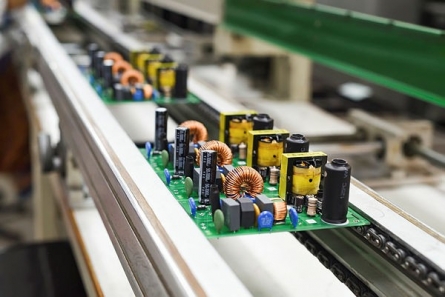Let’s take a closer look at 10 important aspects that all manufacturing companies evaluating ERP systems should keep in mind to achieve maximum benefits from their new business system:
Find a real ERP system that covers all your core processes
First off, there are many systems on the market that call themselves an “ERP” system. The acronym stands for Enterprise Resource Planning and means that your system should manage all the key resources for your enterprise. Or said in another way: manage all the core processes in your company. Production features are a no-brainer, as well as support for handling the supply chain.
However, some forget the importance of including finance features in the main ERP suite. When both finance and operation are tied together, you get transparency into what's driving your financial indicators, enabling you to make real-time decisions fast when the situation requires it.
Find an industry-fit solution that best meets your needs
Production processes are at the heart of manufacturing ERPs. As you dive into the sea of different ERP options, you’ll see there are many different industry solutions. Choosing an ERP solution with industry fit is important because the system is built with your industry needs in mind. That means that all the core processes will have key functionality that is specific to your industry requirements.
Don’t limit yourself, go for multiple manufacturing methods
Don’t limit yourself. When examining the production features of different ERP solutions, choose a vendor that can support several different manufacturing methods. Chances are you're manufacturing a variety of ways to accommodate different customer needs and your ERP system should follow suit.
Look at how your ERP system will support your shop floor workers
Manufacturing is not done in a suit; the real work is done on the shop floor. When evaluating your production features, one of the most important factors is your production workers. They use the system every day, and how they operate on the shop floor each day should be an important consideration into what ERP system you go for.
Working lean? Find a solution that has KanBan functionality
One of the main reasons manufacturers implement ERP solutions is to get control of their supply chain. Manufacturers today face a complex supply chain that can have a major impact on the efficiency of their production. With the right resource planning tools, you’ll be able to actively control your production capacity and see the availability of your skilled labour, machines and equipment. If your company has adopted a LEAN operation approach, then Kanban functionality is an essential ERP requirement.
An integrated quality management system will lead to proactive quality handling
Quality issues can arise at any point during production, and delivering poor quality products can lead to dissatisfied customers, recalls, bad reputation and losing market share. It’s important to make it easy to identify and resolve issues when they happen, as well as having a proactive process established. That’s why an integrated quality assurance module should be high on the list for required ERP features to easily get to the root of the quality issues when, or even before they happen.
Solutions for measurement and calibration will give you a quality advantage
Speaking of quality, for a manufacturing company, measurement tools and calibration controls are synonyms with quality assurance. Consider a situation where you have several measurement tools in use, and one comes back negative after a calibration test. Do you have a measurement history per tool and can you easily find which equipment has been used on what product or batch? Do you have a re-call process in place so you can identify in minutes what products, parts, or customers are affected?
These situations can arise and have a major impact on your clients’ products and your reputation. Find an ERP solution that has the proper measurement control features in place to give you the oversight you need to deliver the right quality products.
Save time with smart documentation handling features
The days of manually checking that all your relevant documentation is included in your product’s documentation package are over. When the finished product is shipped, the documentation package should already be sent to the customer, courtesy of your ERP system. You should rest assured that your ERP system has document handling features in place to keep control of all changes during production and that the right and accurate documents are connected to the finished product.
Give your suppliers and customers self-service options
For manufacturing companies an ERP system will make production-related data available in real-time internally, allowing for better coordination between different operations. But data and processes should also be shareable with external stakeholders like customers and suppliers. Find an ERP solution that has portal capabilities. This allows self-service handling for external stakeholders and enables quicker communication for both sides.
Allow for technical and functional growth with an ERP platform solution
Choosing an ERP system that is also an ERP platform will lay the foundation for your technology expansion and future digital growth. The key is to understand that your ERP system is only one part of a bigger puzzle of information flow. To gain real data insight and digital growth, your ERP system needs to be able to communicate with other systems, machines and technologies.
Let's sum it up
First off, know what different ERP solutions are out on the market and what's included in each suite. As a manufacturing company, you have to consider your industry-related aspects when it comes to an ERP selection. If you find a solution that fulfills the ten aspects described above, you're well on your way to having a business system that supports your way of operation.




